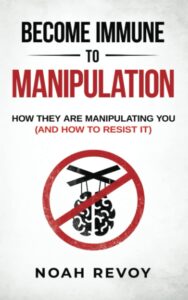In the modern era of rapid information exchange, navigating through the maze of real and fake news is an essential survival skill. However, it is the emotional investment in fake news that can take a serious toll on our psychological well-being and decision-making ability, leading to undesirable social consequences.
Psychological Effects of Emotional Investing
Our mental state can be heavily influenced by the news we consume, particularly when we let our emotions get intertwined with the content. When we allow our emotions to become entangled with fake news, it alters our perception of reality and prompts unnecessary worry and distress. Over time, these interactions with fabricated news can evoke a heightened state of fear or anger.
This manipulates our viewpoint, enabling the propagation of a distorted worldview that is not based on reality but on the deceitful narrative painted by the fake news. This misrepresentation, in turn, cultivates a detrimental cognitive bias, altering how we process information and interact with the world around us. As a result, we can become entwined in a harmful psychological cycle, where the reliance on fake news continues to feed our cognitive bias, further distorting our perception and creating a harmful impact on our mental well-being.
Emotional Investing in Fake News Affects Your Decision-Making
Emotions are a significant driver behind our choices and actions. The creation and distribution of fake news are often centered around manipulating these emotions, thus influencing the decisions we make. The consequences can be severe and far-reaching, whether it’s a significant political decision swayed by a fraudulent narrative or a health-related choice informed by misleading data.
Fake news tends to exploit our fears and sympathies, pushing us to make impulsive and unconsidered decisions that may not be in our best interests. For example, a false report about an impending climate change could cause unnecessary panic and provoke people to make hasty decisions based on fear rather than facts.
Additionally, the intentional emotional appeal in fake news is designed to bypass our logical reasoning. We are more likely to believe a piece of information if it aligns with our feelings, even if it contradicts facts or logic. This manipulative tactic could lead us to make decisions based on a fabricated reality, resulting in regrettable outcomes.
Moreover, as fake news fuels our cognitive biases, it further entrenches us in a specific worldview, limiting our openness to new ideas or contrary evidence. This restrictive mindset can impact our ability to make informed, objective decisions, leading to potential negative consequences on a personal and societal level.
Social Consequences of Emotional Investment in Fake News
The impact of fake news extends beyond individual effects, causing ripples throughout our society. This form of disinformation can create a climate of fear, suspicion, and hostility, promoting divisions among different groups based on factors such as race, religion, and political leanings. The emotional reactions elicited by fake news can exacerbate these divisions, further fueling discord and resentment. Such divisions can be detrimental to societal unity and cooperative efforts.
Ultimately, when emotional investment in fake news becomes widespread, it can significantly impair the social fabric, creating a climate of distrust and division, and hampering collective progress. Thus, it is essential to address this issue not only for our personal well-being but for the overall health of our society.

> Check Current Book Prices <
Dealing with Mainstream Disinformation in a Fake Truth Era
A helpful strategy is to cross-check any contentious or surprising information you come across with other reliable sources. If the story is legitimate, other respected news outlets are likely to be reporting on it as well. Therefore, rely on a variety of credible news sources (not mainstream) to get a well-rounded perspective on current events.
Refraining from sharing unverified content is another effective tactic in fighting the spread of fake news. Before you click that share button, take a moment to validate the story. Not only will this keep you from inadvertently spreading disinformation, but it will also discourage the creation of fake news by decreasing its reach and impact.
Finally, be aware of the emotional ploys used in fake news. Understand that these stories are crafted to manipulate your feelings and influence your actions. By acknowledging this, you can better protect yourself from their emotional tactics and maintain a more objective stance while digesting news content. Armed with these strategies, you can navigate through this era of disinformation with confidence and discernment.



The Manipulative Tactics of Fake Mainstream News
To understand the tricks of fake news, we must first identify the manipulative techniques often employed by those who spread such disinformation. A common method used is sensationalism, where the headline is exaggerated or shocking to capture your immediate attention and induce a quick, emotional response. This is usually accompanied by deceptive practices such as using quotes out of context to mislead or utilizing doctored images to distort the truth.
Mainstream fake news also leans heavily on exploiting the confirmation bias, a psychological tendency where people are more likely to believe information that aligns with their existing beliefs or viewpoints. By pandering to the audience’s preconceived notions, the false information appears more credible and is less likely to be questioned. This tactic not only ensures the viewer’s continued consumption of the misleading content but also fosters an environment conducive to the spread of fake news.
Guarding Your Emotions in the Face of Fake Mainstream News
Building resilience against the emotional manipulation by fake news involves both awareness and emotional intelligence. It’s important to acknowledge that such news stories are specifically crafted to provoke emotional reactions. Utilize this insight as a protective shield for your emotional well-being. When exposed to potentially inflammatory news, practice emotional neutrality and take a step back to authenticate the provided information.
Foster a balanced level of skepticism towards the news and avoid jumping to conclusions based on a single source. Instead, establish a habit of cross-checking information from an array of reputable and trustworthy news outlets. With such proactive strategies, you can effectively manage your emotional responses, maintaining an objective outlook amidst the barrage of misinformation prevalent in today’s media landscape.






